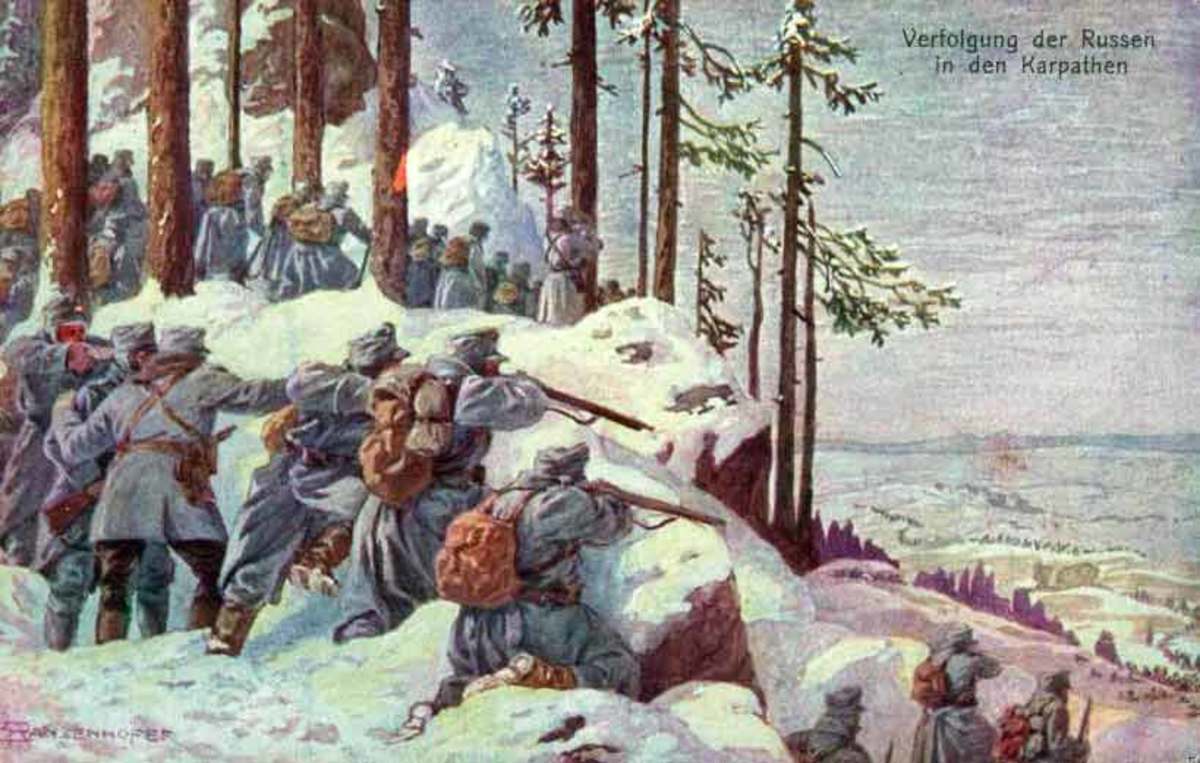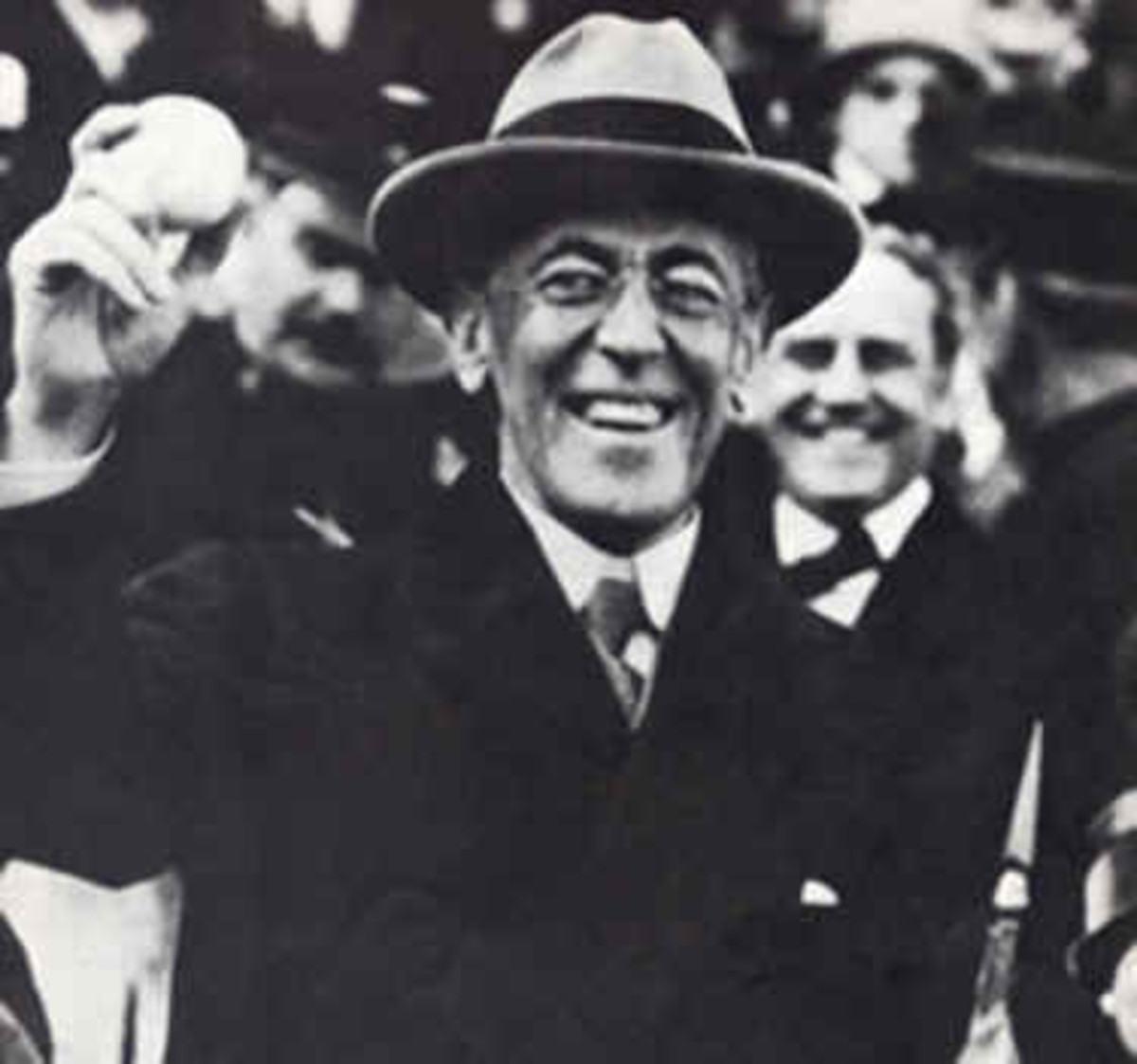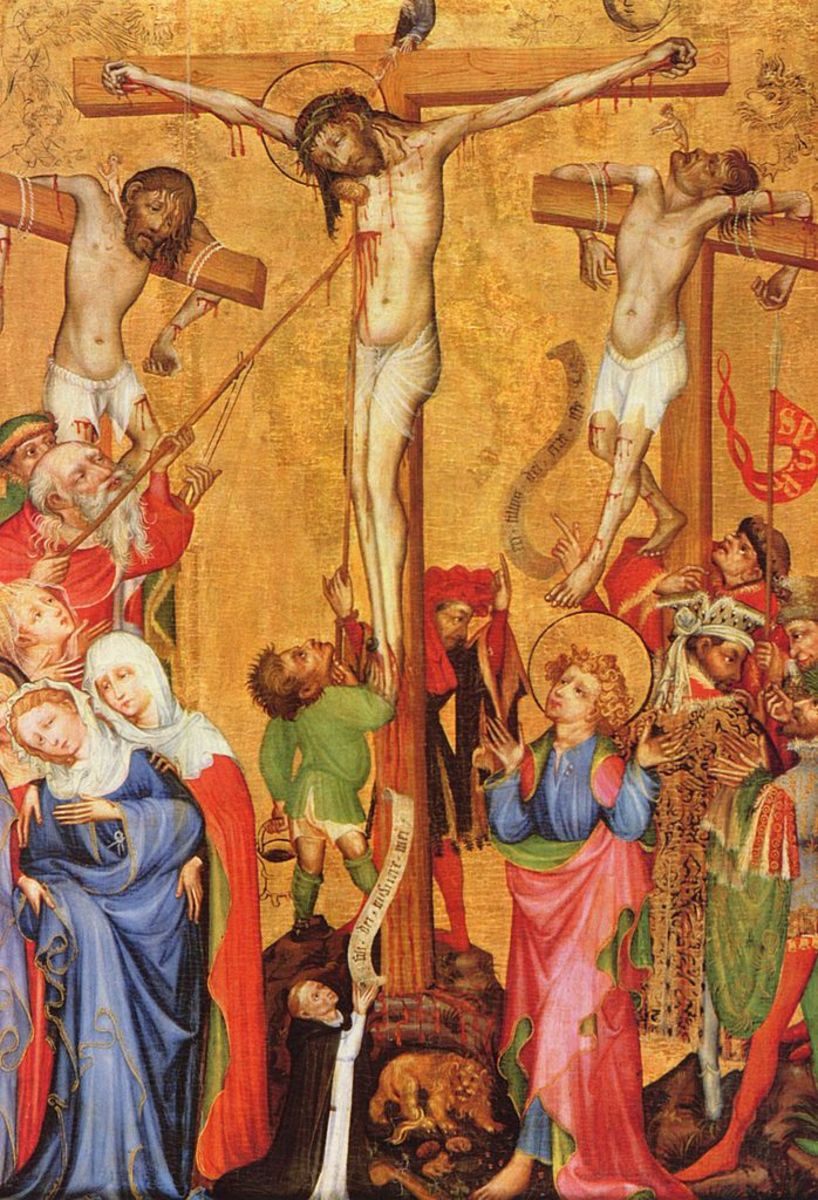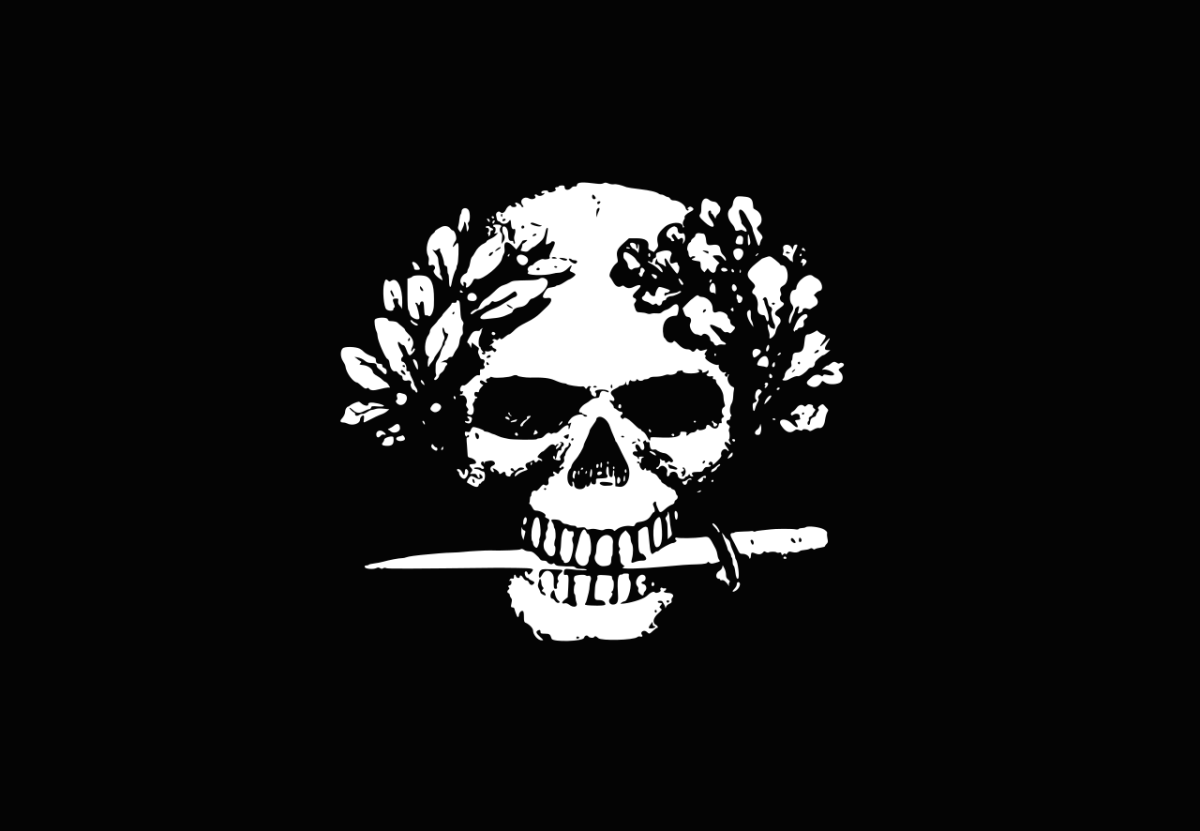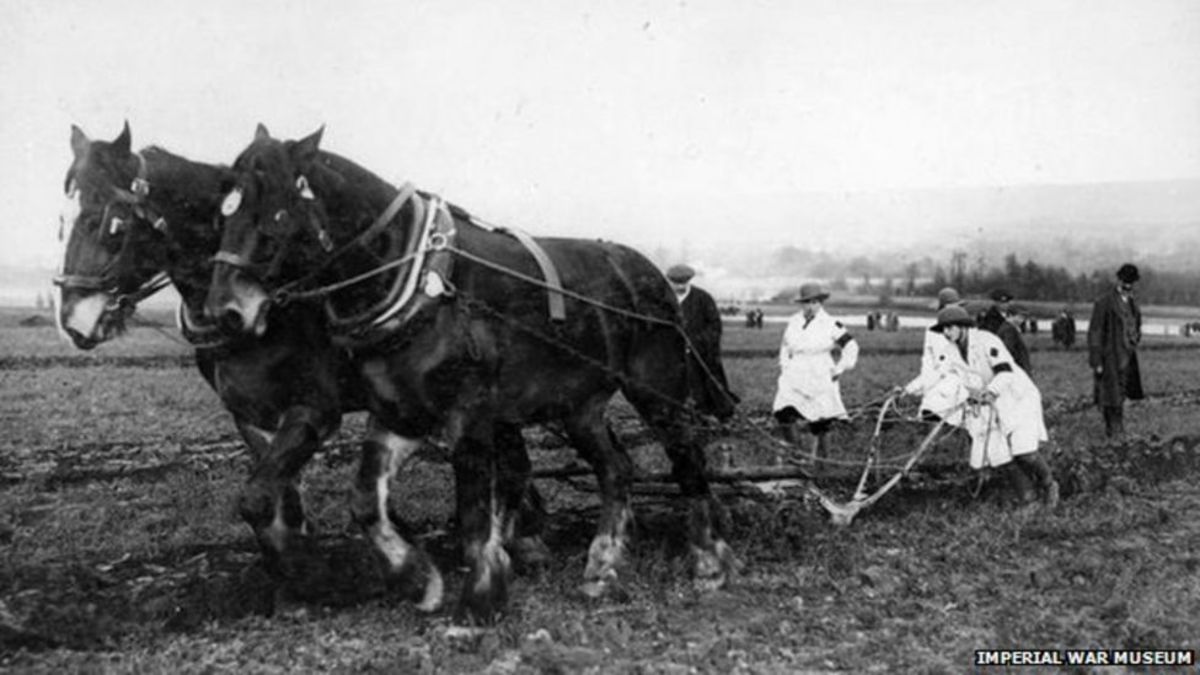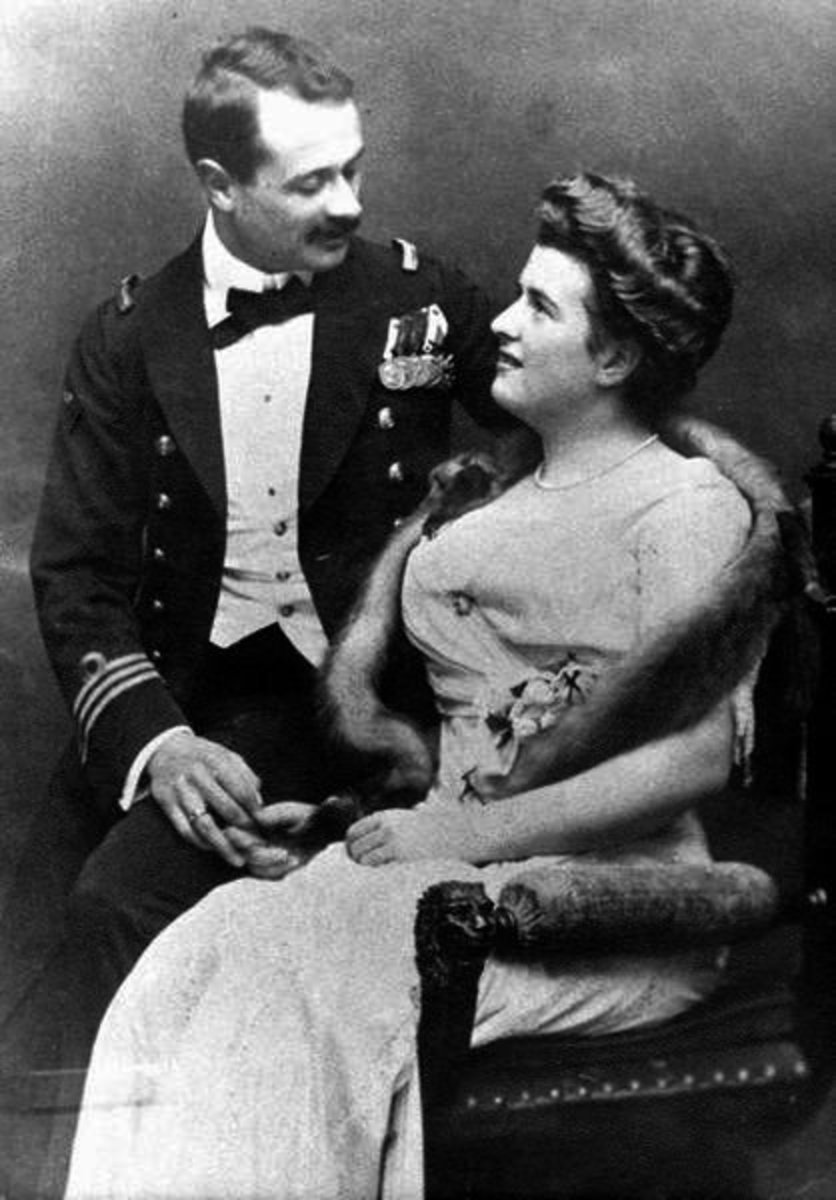- HubPages»
- Education and Science»
- History & Archaeology»
- History of the Modern Era»
- Twentieth Century History
Interesting History: The Events Leading up to the Great War
Introduction
I have seen numerous articles and studies referencing the assassination of Archduke Franz Ferdinand as the "cause of world war one". This is a huge misconception. Quoting Historian Zbynek Zeman about the "tragedy":
"The event almost failed to make any impression whatsoever. On Sunday and Monday [June 28 and 29], the crowds in Vienna listened to music and drank wine, as if nothing had happened."
This is where the difference between the events leading up to a war and an event that justifies a war (casus belli). The events leading up to the war have been unfolding for at least five decades. The casus belli to spark the war was one out of many that could have been used.
Recommended watching:
The Inevitable War?
The most important fact to know about the Great War is that it was inevitable. Two new world powers were born in Europe, and a third one was reborn: Germany, Italy and Austria-Hungary.
All of them had the industrial capabilities of becoming a superpower rivaling the British Empire, but none of them had the colonies to sell their products at, and to invest in.
The Crimean war (1853-56) saw the dissolution of the old military alliance between Austria and Russia, essentially making the two empires enemies, while the ever growing Prussian-French hatred culminated in the Franco-Prussian war (1870-71), out of which a new empire, Germany was formed.
With Italy unified in 1866 and taking Rome in 1870, a stalemate arrived to European politics: the old powers sought to keep their thrones (France, Britain, Russia) while the new powers sought to re-shape the world (Germany, Italy, Austria-Hungary).
Why was the Inevitable War so long?
Looking at the length of previous war, most officials thought the war would end in a month or two. Soldiers going to the Serbian front from Austria-Hungary told their families that "They would be back by autumn", while British soldiers claimed that "It'd be over by Christmas". But the European superpowers failed to see two things.
- The amount of weapons stockpiled. Italy, Germany and Austria-Hungary had no colonies, they had no market for their products, and were forced to create weapon industry in order to keep up the growth. The most famous scene from this long-going arms race was the Anglo-German naval arms race, where Germany sought to build enough dreadnoughts to overthrow the British rule on the high seas.
- The events of the American civil war were considered extremities. Trench warfare was present in the civil war, albeit not as much as in WW1. Yet the casualties were still enormous, and the civil war could have served as a warning sing for the European powers.
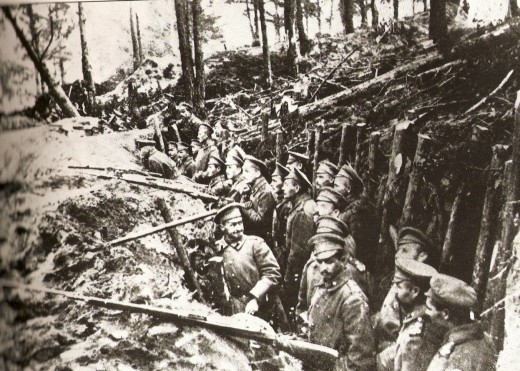
Three old powers, three new powers, huge weapon stockpiles and diplomatic disputes: these have been the shaping factors in European history for the last part of the long 19th and the early 20th century.
Those knowing the details of the Great War may have already hissed up a few times since I keep mentioning "three new powers", grouping Italy with Germany and Austria-Hungary. They were on "one side" before war broke out, bound by the triple alliance of 1882. But the relations were a little more complicated...

Diplomatic relations, goals and territorial claims right before the Great War
- Germany sought to overthrow the British hegemony and claim overseas colonies, while driving out Russia from eastern Europe
- Austria-Hungary sought to gain colonies overseas, to conquer the Balkans and drive out Russia from eastern Europe.
- Italy sought to reclaim Nizza and Savoye from France and to claim colonies. However, Italy also wanted southern Tirol from Austria-Hungary, and sought to gain a foothold on the Balkans.
- Serbia sought to create a southern Slavic unified state.
- The Ottoman Empire sought to reconquer the lost territories on the Balkans, while claiming Russian lands in the Caucasus and reclaiming Egypt from Britain.
- Romaina sought to claim Bessarabia from Russia, and Transylvania from Austria-Hungary.
- Russia sought to conquer the Polish region from Germany and Austria-Hungary, while defending the Orthodox Slavic population on the Balkan, and as with always, to reconquer Constantinoples and enter the Mediterranean.
- France sought to reclaim Alsace-Lotharingia from Germany.
- Britain sought to defend her supremacy and to re-create the balance in central Europe.
Since German and Austro-Hungarian goals were the same, they remained loyal to each other until the very end of the war. Italy on the other hand broke the triple alliance by refusing to enter the war in 1914. Italy claimed that Austria-Hungary was the aggressor and the triple alliance was a defensive pact.
In 1915 though, the Treaty of London was sealed and Italy entered the war on the side of the triple Entente, hoping to receive Dalmatia and southern Tirol after an Austro-Hungarian defeat. Romania was an ally of the central powers too, but declared war on Austria-Hungary in 1916 after the Entente powers promised them eastern Hungary.
Recommended reading
The Balkans, and the Bosnian crisis
Often called the "Powder keg of Europe" the Balkan peninsula is the southeastern part of Europe, a landscape latticed by ethnic conflicts ever since the dawn of the Ottoman Empire (19th century).
The Balkans were the proxy battlefields of the old, since the British were supporting the Greek in order to prevent Russian conquest, Russia supported the Slavic states to prevent Western influence. Austria-Hungary on the other hand possessed territories with Slavic majority (Kingdom of Croatia, Bosnia annexed in 1908), and sought to conquer Serbia too.
In 1878, the treaty of Berlin created three new states: Serbia, Romania and Montenegro. However, the Balkan problem was not solved, and the crisis continued with Bosnians seeking independence from Austria-Hungary, Bulgary from the Ottoman Empire and the rest of the Balkan states having territorial claims from the Ottoman Empire.
The annexation of Bosnia was made possible by the Buchlau bargain, a treaty between Russia and Austria-Hungary: Russia would legalize the annexation while Austro-Hungary would pull out their troops from Serbian territories. Slavic nationalism lived on though, and resulted in the famous assassination.
The next stop was a the town hall, where instead of the pre-written speech, Ferdinand greeted the major with the famous line:
'Mr. Mayor, I came here on a visit and I get bombs thrown at me. It is outrageous.
— Franz Ferdinand, hours before the assassination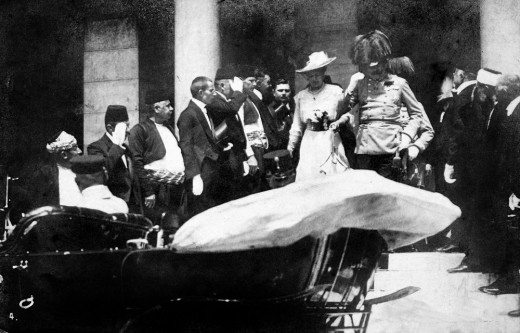
After the speech, Ferdinand decided to visit those injured in the bombing in Sarajevo hospital. The changes in the route were made, but due to lack of organised communications, most of the drivers were not informed.
After the hospital visit, Ferdinand's chauffeur accidentally took a wrong turn. The convertible arrived in an alley alone, and by pure chance, Gavrilo Princip, one of the assassins, was sitting in the café overlooking the alley.
He got up, ran to the car and shot Sophie in the stomach and Ferdinand in the neck. Both of them died on the way to the governor's home, where they were to receive medical treatment.
After the assassination and receiving a letter from Germany about them supporting the Monarchy, the Austro-Hungarian government sent an ultimatum to Serbia to be obeyed within 48 hours.
The contents of the ultimatum:
- Suppress all publications which "incite hatred and contempt of the Austro-Hungarian Monarchy" and are "directed against its territorial integrity".
- Dissolve the Serbian nationalist organisation "Narodna Odbrana" ("The People's Defense") and all other such societies in Serbia.
- Eliminate without delay from schoolbooks and public documents all "propaganda against Austria-Hungary".
- Remove from the Serbian military and civil administration all officers and functionaries whose names the Austro-Hungarian Government will provide.
- Accept in Serbia "representatives of the Austro-Hungarian Government" for the "suppression of subversive movements".
- Bring to trial all accessories to the Archduke's assassination and allow "Austro-Hungarian delegates" (law enforcement officers) to take part in the investigations.
- Arrest Major Vojislav Tankosić and civil servant Milan Ciganović who were named as participants in the assassination plot.
- Cease the cooperation of the Serbian authorities in the "traffic in arms and explosives across the frontier"; dismiss and punish the officials of Šabac and Loznica frontier service, "guilty of having assisted the perpetrators of the Sarajevo crime".
- Provide "explanations" to the Austro-Hungarian Government regarding "Serbian officials" who have expressed themselves in interviews "in terms of hostility to the Austro-Hungarian Government".
- Notify the Austro-Hungarian Government "without delay" of the execution of the measures comprised in the ultimatum.
(Quoted through wikipedia)
Serbia tried to seal a compromise, accepting all points but the sixth. British prime minister Sir Herbert Asquith's letter summarizes the situation:
"...the situation is just about as bad as it can possibly be. Austria has sent a bullying and humiliating ultimatum to Serbia, who cannot possibly comply with it, and demanded an answer within forty-eight hours-failing which she will march. This means, almost inevitably, that Russia will come to the scene in defence of Serbia and in defiance of Austria, and if so, it is difficult for Germany and France to refrain from lending a hand to one side or the other. So that we are in measurable, or imaginable, distance of a real Armageddon. Happily, there seems to be no reason why we should be anything more then [sic] spectators."
Austria-Hungary refused the ultimatum, and declared war on Serbia.
This is where the Great war started.
Recommended video
Community feedback
Do you think world war one could have been prevented? If yes, in what way? Please share your opinions in the comments section.
© 2015 Medvekoma



